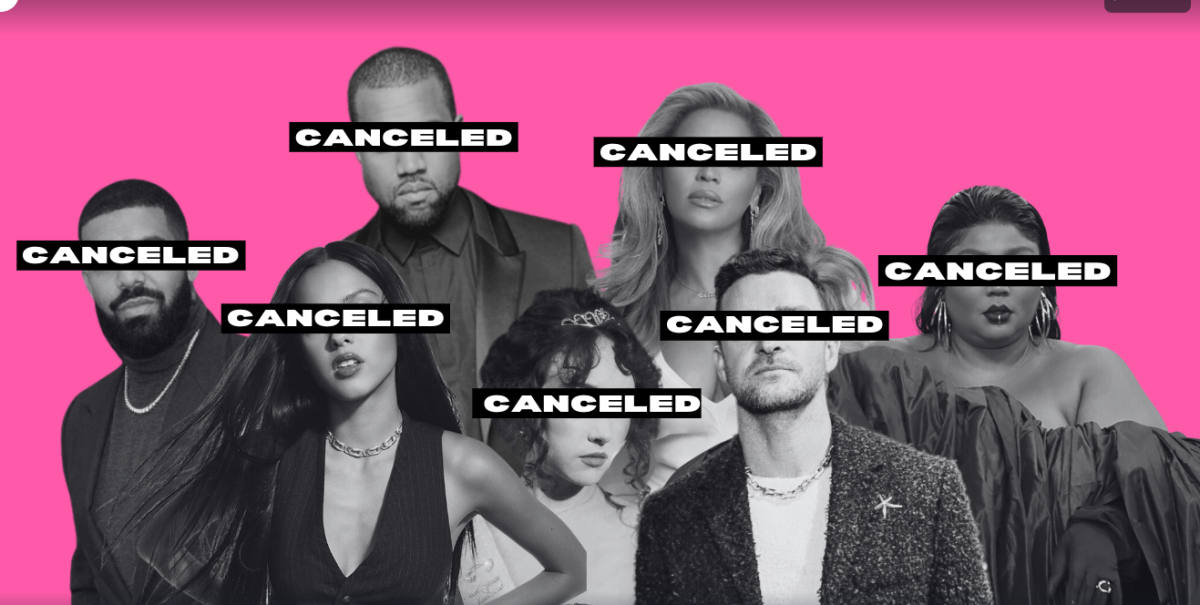Musicians, celebrities, athletes, can have their livelihoods destroyed in the blink of an eye. One misstep, one old tweet, one mean glance, one instance of being in the wrong place at the wrong time–instantly ruining the careers they spent years building because of the way society perceives their actions.
Cancel culture can be defined as withdrawing support from public figures for perceived offensive or controversial actions. Social media intensifies this, with mass groups uniting to bring attention to the actions of a specific person. Cancel culture is prevalent in the entertainment industry, especially music, where artist-fan relationships, artists behavior, and how that behavior is perceived all play a role.
On September 27, rising pop artist, Chappell Roan, pulled out of two shows claiming it was for her mental health due to overwhelming stress from her career. She shared her reasoning on Instagram, saying, “I feel pressures to prioritize a lot of things right now and I need a few days to prioritize my health.” She added, “I want to be present when I perform and give the best shows possible. Thank you for understanding. Be back soon xox.” However, Roan’s transparency backfired, as many of her fans were disappointed and angry with her, accusing her of not following through with her commitments. Many fans claimed that if every other artist can push through the pressure, so can she.
Cancel culture can heavily impact artists’ careers, but it doesn’t always end their careers. Redemption is possible, but it depends on how the situations are handled and how the fan bases respond and if they choose forgiveness. Kanye West for example, faced major backlash for making antisemetic remarks on X (formally twitter) and Instagram, leading to major criticism toward him as a person and as a professional. Some argued West being cancelled was justified, but some questioned whether or not being cancelled was reasonable. This situation also opened a debate about setting apart the art from the artist. As an artist, his career has remained successful.
Cancel culture thrives on impossible standards set for public figures, but they are human and make mistakes. They have opinions, even if fans may not necessarily agree with them. Many fans argue that unless an artist’s views are deeply offensive, differing opinions and beliefs should not lead to their career downfalls. But it ultimately depends on how fans perceive and react to an artist’s actions and words.
The difference between reality and perception is that we don’t see the real truth because it’s clouded behind our biases. This is the basis of cancel culture.


